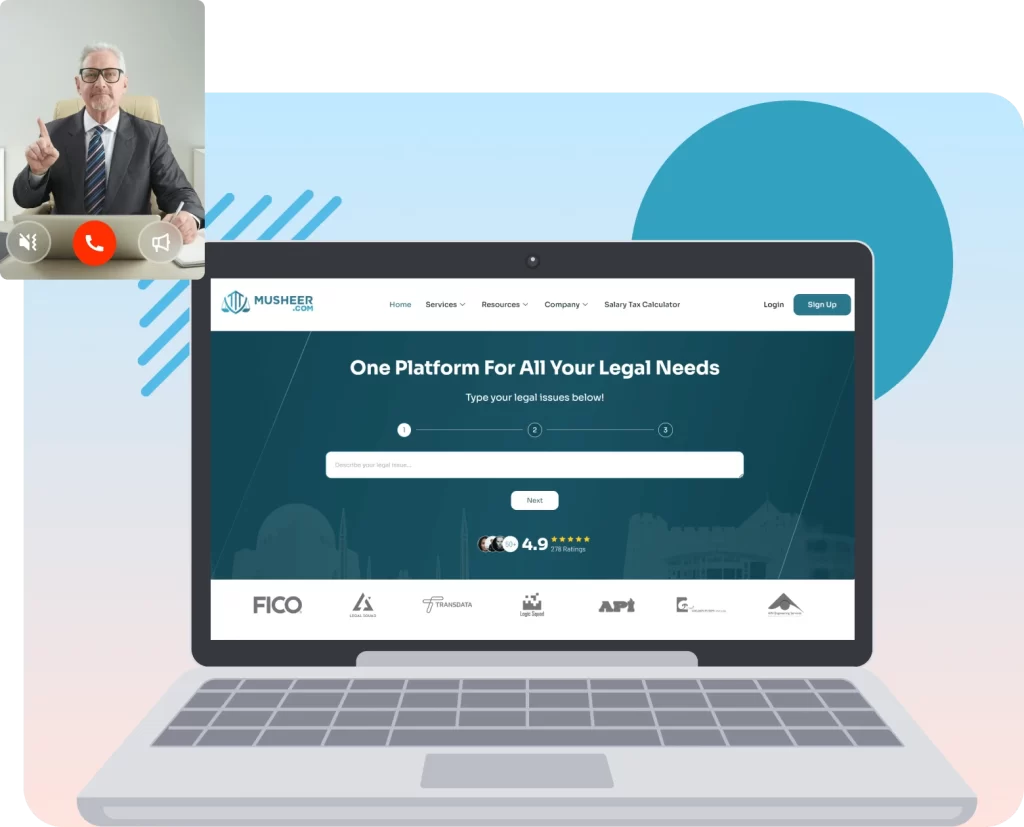Introduction
Corporate lawyers are essential players in Pakistan's business world, providing legal guidance and ensuring that companies operate within the law. Their expertise spans various legal fields, making them indispensable to businesses of all sizes. This blog aims to provide an in-depth understanding of who corporate lawyers are in Pakistan, their roles and responsibilities, and the career path to becoming one.
Who is a Corporate Lawyer in Pakistan?
A corporate lawyer, also known as a business lawyer or corporate counsel, specialises in corporate law within the Pakistani legal framework. They advise businesses on their legal rights, responsibilities, and obligations, helping companies comply with Pakistani regulations, navigate complex legal issues, and protect their interests in various transactions and operations.
Corporate lawyers in Pakistan can work in private law firms, in-house legal departments of corporations, government agencies, or as independent consultants. Their work environment can vary, but their core objective remains the same: to provide legal support and ensure business operations are legally sound.
Roles and Responsibilities of a Corporate Lawyer in Pakistan
Corporate lawyers in Pakistan have a wide range of roles and responsibilities, including:
- Advising on Corporate Structure and Governance
- Formation and Incorporation: Assisting with the incorporation of companies and advising on the best legal structure for businesses under Pakistani law.
- Corporate Governance: Ensuring that companies comply with governance standards, including the roles and duties of directors and officers as per Pakistani regulations.
- Drafting and Reviewing Contracts
- Contract Creation: Drafting various types of contracts, such as employment agreements, vendor contracts, and partnership agreements, ensuring they adhere to Pakistani law.
- Contract Review: Reviewing and negotiating contracts to ensure they are fair and legally sound within the Pakistani context.
- Mergers and Acquisitions (M&A)
- Due Diligence: Conducting due diligence to assess the legal risks involved in mergers, acquisitions, and other business transactions in Pakistan.
- Transaction Structuring: Structuring deals and drafting necessary documents, such as purchase agreements and merger agreements, ensuring compliance with Pakistani laws.
- Compliance and Regulatory Matters
- Regulatory Compliance: Ensuring that companies comply with relevant Pakistani laws and regulations, including securities laws, environmental regulations, and employment laws.
- Internal Policies: Developing and implementing internal policies and procedures to maintain compliance with Pakistani standards.
- Dispute Resolution and Litigation
- Legal Representation: Representing companies in legal disputes within Pakistan, including litigation, arbitration, and mediation.
- Settlement Negotiations: Negotiating settlements and resolving conflicts to avoid costly litigation.
- Intellectual Property Protection
- IP Management: Advising on the protection and management of intellectual property within Pakistan, including trademarks, patents, and copyrights.
- IP Litigation: Representing companies in intellectual property disputes and enforcement actions within the Pakistani legal framework.
- Corporate Finance and Securities Law
- Financing Transactions: Advising on financing options, including equity and debt financing, and ensuring compliance with Pakistani securities regulations.
- Securities Offerings: Assisting with initial public offerings (IPOs), private placements, and other securities offerings in Pakistan.
Career Path to Becoming a Corporate Lawyer in Pakistan
Becoming a corporate lawyer in Pakistan involves several steps:
- Obtain a Bachelor’s Degree
- A bachelor’s degree in law (LLB) is the first step. Universities in Pakistan offer a 5-year LLB program that covers various aspects of Pakistani law. There is also a foreign degree programme for 3 years as well.
- Enrol in a Law School
- Enrol in a recognized law college in Pakistan. Focus on courses related to corporate law, business law, and contracts.
- Complete Law School and Earn Your LLB
- Successfully complete your LLB degree. This typically involves passing all required courses and examinations.
- Pass the Bar Exam
- Pass the bar exam (GAT) conducted by the relevant Bar Council in Pakistan. This is essential for obtaining a licence to practise law.
- Gain Hands-On Experience
- Internships: Pursue internships during your law studies with law firms or corporate legal departments to gain practical experience.
- Clerkships: Consider clerkships with senior lawyers or judges to get hands-on experience in legal proceedings and corporate law practice.
- Volunteer Work: Engage in volunteer work or pro bono projects related to corporate law to build your resume and gain valuable insights.
- Start Your Professional Career
- Join a Law Firm: Start working as an associate in a law firm specialising in corporate law.
- In-House Counsel: Alternatively, join the legal department of a corporation as an in-house counsel.
- Continue Education and Specialise: Consider specialising in a specific area of corporate law, such as mergers and acquisitions, securities law, or intellectual property. Continuing education and professional development are vital for staying updated with legal developments.
- Build a Professional Network
- Building a strong professional network through industry associations, legal organisations, and networking events can enhance career opportunities and growth.
Getting Hands-On Experience
Gaining hands-on experience before starting your professional career is crucial for staying ahead of the pack. Here’s how you can achieve this:
- Internships and Clerkships
- Pursue internships and clerkships with reputable law firms, corporate legal departments, or government agencies. These experiences provide practical insights into the workings of corporate law and help you build a professional network.
- Participate in Moot Court Competitions
- Engage in moot court competitions and legal debates. These activities hone your advocacy skills and provide a platform to apply your legal knowledge in simulated real-world scenarios.
- Attend Workshops and Seminars
- Participate in workshops, seminars, and conferences related to corporate law. These events offer opportunities to learn from industry experts and stay updated with the latest legal trends.
- Pro Bono Work and Legal Clinics
- Volunteer for pro bono work or join legal clinics that deal with corporate law issues. This hands-on experience is invaluable and demonstrates your commitment to the field.
- Networking and Mentorship
- Build relationships with experienced corporate lawyers and seek mentorship. Mentors can provide guidance, share their experiences, and offer valuable career advice.
Conclusion
Corporate lawyers are vital to the success and legal health of businesses in Pakistan. They provide essential legal advice, ensure regulatory compliance, and help navigate complex legal landscapes. Understanding the roles, responsibilities, and career path of corporate lawyers in Pakistan can provide valuable insights for aspiring legal professionals and businesses seeking legal expertise.
Whether you're considering a career in corporate law or looking to understand the role of a corporate lawyer better, this guide offers a comprehensive overview of this critical profession within the Pakistani context. Gaining hands-on experience and building a professional network early in your career will set you apart and pave the way for a successful career in corporate law.






